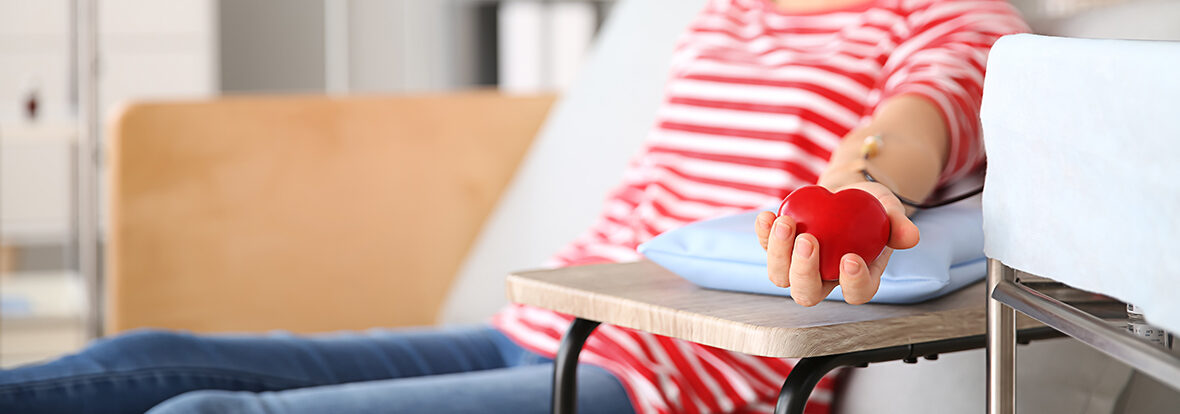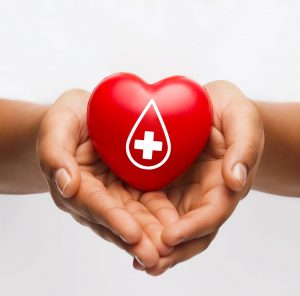In these trying times, we offer some ideas that support different facets of our communities:
- Blood: The American Red Cross is facing a severe blood shortage due to an unprecedented number of blood drive cancellations. Red Cross officials say from the beginning of March to the 19th, nearly 5,000 blood drives have been canceled across the country, resulting in 170,000 fewer blood donations. The act of donating blood does not transmit the coronavirus because it’s a respiratory virus, not bloodborne. Infection safeguards are in place to protect donors, staff and the blood products. Schedule to donate here.
- Supplies: Companies have mobilized quickly to provide crucial donations from across businesses to help those impacted. Last week, acting on a request from Ascension Medical Group St. Vincent’s, our Jacksonville Florida team purchased tents and cones to create a drive thru Covid-19 station. The team also mapped out the route, placement, and locations, etc. with their staff. We are also working with industry partners to donate materials and supplies to local hospitals in need.
- Nonprofits: It is inspiring to see companies stepping up to take care of their employees, families and their customers. In an effort to help nonprofits with direct-service programs impacted by the COVID-19 pandemic, the United Way of Rhode Island and the Rhode Island Foundation have established the Rhode Island COVID-19 Response Fund to assist nonprofits during the coronavirus outbreak: you can donate here or find a similar response fund in your local community.
Support Local Business
Cities and states are increasingly limiting restaurants to takeout and delivery options in order to maintain social distancing and minimize the spread of Coronavirus. We can help sustain the industry by ordering online takeout now and purchase gift certificates for future visits.
Many bartenders and waitstaff have been laid off as a result. We can contribute to campaigns that feed into larger funds—many of which are dedicated to help those laid off workers. The Restaurant Workers’ Community Foundation is one example of such a campaign and launched a COVID-19 Emergency Relief Fund, which supports individual workers facing economic hardship.
Gyms have also shut down just when we need them the most to deal with all this anxiety. Many workout studios have adapted quickly and are offering virtual online live-streaming sessions. Check to see if your local facility is offering these services so you can work off that stress.
Virtual Check-Ins for Safety
Older people and those with immune deficiencies are more likely to have serious COVID-19 illness making it harder to cope with and recover. Be sure to check in with your senior family members, friends and neighbors virtually via FaceTime, WhatsApp or Skype, and practice good hand hygiene habits such as washing your hands for at least 20 seconds. Retailers are responding by setting aside time for their most vulnerable customers to shop, including those age 60 and over.
Remote Technology
More of us are embracing remote work due to the spread of COVID-19. Managing childcare at home? Talk to your manager about creating a flexible work schedule to account for time you may need for family responsibilities. Use the webcam function when connecting with team members, partners, and clients to create more connectivity.
Museums that are temporarily closed are offering virtual tours and online galleries from the comfort of our living rooms. One such venue is Design Museum, which also hosts webinars.
So, take a moment to do the right thing for those around you — share your positive experiences, clever workspace setup ideas, and lessons learned in the comments below. Stay safe!



2 Replies to “What Can We Do to Help?”
Linda Hower Bates
Fantastic tips and suggestions for caring for our communities and people alike! Our local blood bank is now offering neighborhood blood drives with their mobile units so folks don’t have to come in either.
Cheryl Janicki
Thanks Becky! Great suggestions.
Comments are closed.